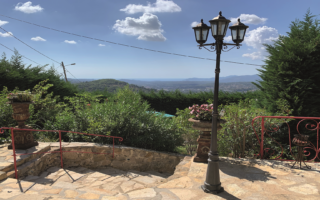Help is at hand
School assistance for children with learning difficulties is available in?France but takes time to be put in place, explains Helen Bevis
Moving to France can be complicated enough, but how much extra paperwork and hassle will there be if your child has special needs? To start with be aware that the sensitive phrasing such as special needs’ does not exist. The term �l�ve handicap� is used widely to cover a vast range of conditions from mild dyslexia to physical handicap.
Some 180,000 special needs students were schooled in France during 2009/2010 – an increase of more than 30% in five years. This is, in part, due to the law (La loi du 11 f�vrier 2005) making equal access to education an obligation for all students. Wherever possible, students with special needs study alongside ordinary students in regular classes. Educational authorities are obliged to find the best solution for a student’s educational requirements.
A key principle of this law is that students with special needs can, in the first instance, be enrolled in their local school. Subject to a diagnosis of the issue and the subsequent projet personnalis� de scolarisation (le PPS – personalised school project) they could either continue in the original school, with or without extra help, or move to another institution more adapted to their needs. A further principle is that parents should play an important part in the decision-making process.
So what are the steps you need to take? First enrol your child in your local ordinary school just like everybody else – contact your local mairie for details. This school will become their �tablissement de r�f�rence (reference establishment).
Then the student’s needs should be correctly identified; contact the maison d�partementale des personnes handicap�es (MDPH – department’s centre for handicapped people, and each department is obliged by the 2005 law to have one). A diagnosis will enable the authorities to propose the most suitable solution and create the PPS. A list of MDPH is available on the government’s website (see list of addresses). An enseignant r�f�rant (reference teacher) should deal with the administration of the student’s schooling as long as they require specific monitoring. There should be regular meetings of the medical and educational teams concerned, throughout the student’s school life, to discuss progress and updates of the PPS.
The PPS will specify whether your child should have collective or individual tuition, be in an ordinary’ or medico-social’ environment and if particular equipment or accompaniment by an auxilaire de vie scolaire (AVS – teaching assistant) will be required. Parents also play a role in the PPS, aided by the enseignant r�f�rant from the municipality where your child is enrolled.
Individual basisA child who has been given the green light by the MDPH to attend an ordinary school, but who has mild special requirements, such as learning difficulties that might require support taking notes, should be assigned an AVS. They will help on an individual basis, in an ordinary classroom situation. The job of an AVS is not just to help the child with schoolwork, but also with social education – often this is more important than academic assistance. A collective alternative is the RASED (r�seaux d’aides sp�cialis�es aux �l�ves en difficult� – network of specialist helpers for children with difficulties); they are generally used for children needing extra help with schoolwork.
For students with requirements which their �tablissement de r�f�rence cannot meet, there is a network of specialised classes called classe d’int�gration scolaire (CLIS). This is a group of no more than 12 pupils, based within an ordinary school. Not every school will have one; instead the student will attend the nearest to the catchment area of his or her home. Students will be grouped according to a compatible range of learning needs, with ages ranging from six to 12. Above this age, at coll�ge, the same system applies but is called UPI (unit� p�dagogique d’int�gration). In both the CLIS and UPI the teacher will adapt the syllabus to suit the ages and needs of the students. Different types of CLIS cater for different demands.
Fran�oise Maierean is an education assistant in a CLIS in Montpellier. In her class there are children with neurological problems, autism, dysphasia, dyslexia, and dyscalculia. However in her CLIS, children who come under the umbrella of �l�ve handicap� also include those whose home life is impacting on their ability to learn. Some of Fran�oise’s students have special needs that require sessions as hospital day patients at the h�pital du jour.
The experience of one group of mothers shows that the infrastructure of care exists, but getting access to that help is not plain sailing, and speaking French is crucial. Anabel, Maggie and Claudia are all mothers of bilingual children, near Montpellier. They all received suggestions that being bilingual was too much for their children. Maggie was even told that her daughter’s problem might be due to the fact that she spoke English at home. But as Claudia (mother of Ben with high function autism) points out, being bilingual did not cause their learning difficulties, it’s more that their problems made being bilingual more complicated. She believes that, in the end, it helps their capacity to deal with their handicap.
Anabel, the mother of Celina, who was diagnosed as dyspraxic at the age of seven, is certain that although her daughter is now in a good school environment, her experience in grande section of maternelle (age five to six) was so traumatic that it took her years to recover. At first in petite section Celina’s learning difficulties were blamed on her young age – she was barely three when she started school in the September. Then, after retaking her moyenne section (aged four to five), an orthophoniste became involved.
An orthophoniste is not strictly a speech-therapist; they also work with children on mathematical logic and anything related to linguistic coordination. The orthophoniste suggested a visit to a neurologist, but even after a scan, nothing wrong was found with Celina so she continued through the school system despite her difficulties. It was during CE1 (age seven to eight) that the neurologist suggested dyspraxia, but told her mother not to worry as she’d probably learn to read by the age of 15! During this year Celina spent mornings in a CLIS class and afternoons in her ordinary class. This combination proved disastrous as she failed to find her feet in either situation. Anabel says she’s lucky she doesn’t work as she has the time to devote to Celina and to taking her to the numerous specialists.
Grown in confidenceAnabel insists the best help comes from other mothers as it was only through talking to other parents that she found out about the MDPH. With the help of the MDPH, Celina was accepted for one-year full-time at a local h�pital du jour – in small classes adapted to her needs, where she grew in confidence and ability. She was able to return to a normal school and, with the determination of her mother, has been accepted onto the SESSAD scheme, which will offer her support until she is 18.
SESSAD is the service d’education sp�ciale et de soins � domicile (service for special education and home help). This team of specialists will work with Celina who will have a combination of schooling in an ordinary school, with an AVS, and medical treatment to help her motor disability. Anabel does not need to pay as her child’s disability has been fully diagnosed and this entitles her to a 100% reimbursement. The diagnosis had to be confirmed by the neurologist and then Anabel’s general doctor helped her with the dossier for entitlement to financial aid.
Maggie, with two disabled daughters – one dyspraxic and the other with severe hyperactivity – and now aged 18 and 12, does not give the French system a glowing report. She firmly believes that much depends on the attitude of the teachers and the schools as to how much support you will find. Maggie’s experience is extremely negative; it took years before her eldest daughter was properly diagnosed and until 6�me (aged 14) she was considered to be lazy– in fact her teacher once wrote nul’ (stupid) across her work.
These experiences, and general forum discussions, suggest that moving to France with a special needs child is not an easy step. The structures are in place, but getting the necessary help requires patience, determination and an excellent level of French.
Tips to help your special needs child
Never ignore the difference in your child by saying will go as they grow upIf in doubt, seek professional helpTalk to teachers if you have the slightest concern about your childCommunication between parents and professionals is very important, for both the parents and the childDon’t give up!
Fact File
www.education.gouv.fr
To find your nearest MDPH visit: www.cnsa.fr
Share to: Facebook Twitter LinkedIn Email


